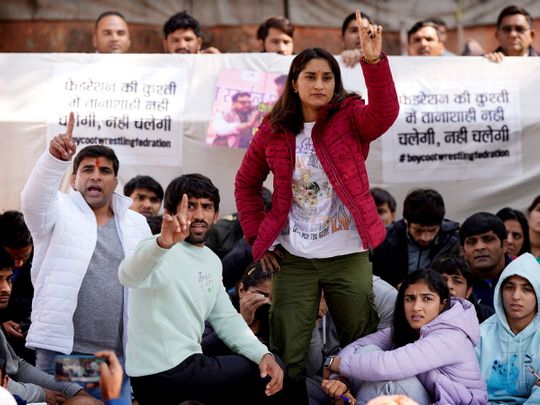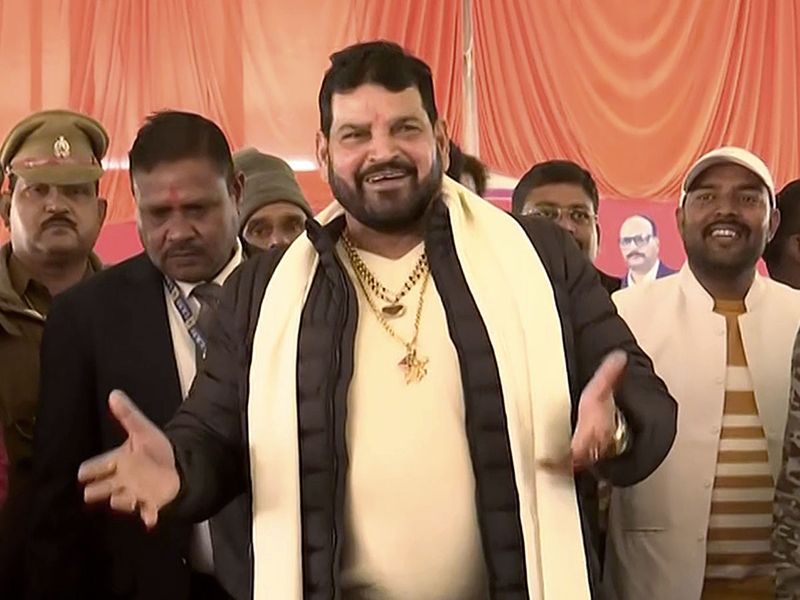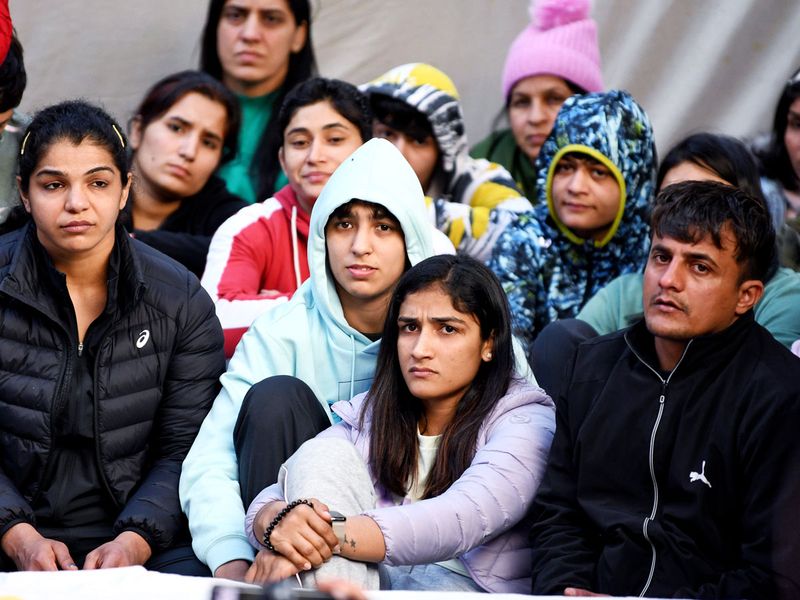
It was an unprecedented sight: India’s top wrestlers, who have won medals at world championships and the Olympics, protesting on the streets of New Delhi — the national capital, demanding the resignation of the powerful wrestling federation chief over sexual harassment allegations. Their sustained protest worked, and on Friday (January 20), Brij Bhushan Singh, also a Bharatiya Janata Party MP from Uttar Pradesh, had to step down as the government set up a committee to probe the accusations.
The three-day sit-in protest was led by world championship medallists Vinesh Phogat, Deepak Punia and Olympics podium finishers Ravi Dahiya, Bajrang Punia and Sakshi Malik. Phogat tearfully described thoughts of taking her own life. It takes great courage to speak up about sexual abuse, and the wrestlers showed just that by going public with years of alleged harassment at the hands of Singh and his allies.
Singh has vehemently denied the allegations and for days had dug in his heels, claiming there was a larger plot to defame him. But the wrestlers did not back down. Phogat told the media she has the voice recording of a woman wrestler who told her about the mental and physical torture she suffered. Phogat also said that she knew about “10-20 girls” who have been “exploited in the national camp over the past 10 years”.

She also claimed that around seven boys had told them they were suffering from depression because of the torture by a vice-president of the wrestling federation. The alleged victims sent written complaints to the federation, which were ignored, says Phogat. The federation has seven vice-presidents, and it is not yet known who the wrestlers are referring to as the alleged perpetrator.
The controversy exposes the murky underbelly of Indian sports, where athletes are caught in a system dominated by politicians and men, which makes it difficult for women to speak out. These athletes have braved the odds to train hard, with little financial or institutional backing, and won Olympic medals. That makes their story even more heartbreaking.
When the wrestlers first went public with their allegations, I heard the usual refrain on social media — why did they take so long to speak? This is classic victim-blaming. Most survivors of sexual abuse are terrified to speak up, especially if the abuser is in a position of power. So yes, it CAN take months and even years to find the courage to speak up or file a complaint, but that does not take away from the seriousness of the crime.
How the accused get away
It is shameful that, more often than not, the establishment in Indian sports looks the other way. They don’t hesitate to bask in the limelight when these athletes win medals for India on the world stage but let them down over sexual harassment claims. There is the recent example of a woman coach in Haryana who has levelled serious sexual harassment charges against the state sports minister, but the Haryana government backed him. He has given up the sports portfolio but remains a minister. How will there be a fair investigation by the police, which has filed a case, when he remains in power? The mind boggles.

Look at the profile of the former wrestling federation chief. The 66-year-old Brij Bhushan Singh is a six-time Member of Parliament — five times from the BJP and once from the Samajwadi Party. This explains why he is so powerful and has got away with criticism of the Yogi Adityanath government in the past.
Sexual abuse allegations are not new to Indian sports. In 1990, a 14-year-old tennis player, Ruchika Girhotra, spoke up against the then president of the tennis federation and senior Haryana police officer SPS Rathore for sexually abusing her. But the state backed him, and he was even promoted to the top job as Director General of Police. Facing sustained harassment from the police, Ruchika took her own life and eventually, when Rathore was punished many years later, he only got six months in jail.
We must never allow this to happen again.









